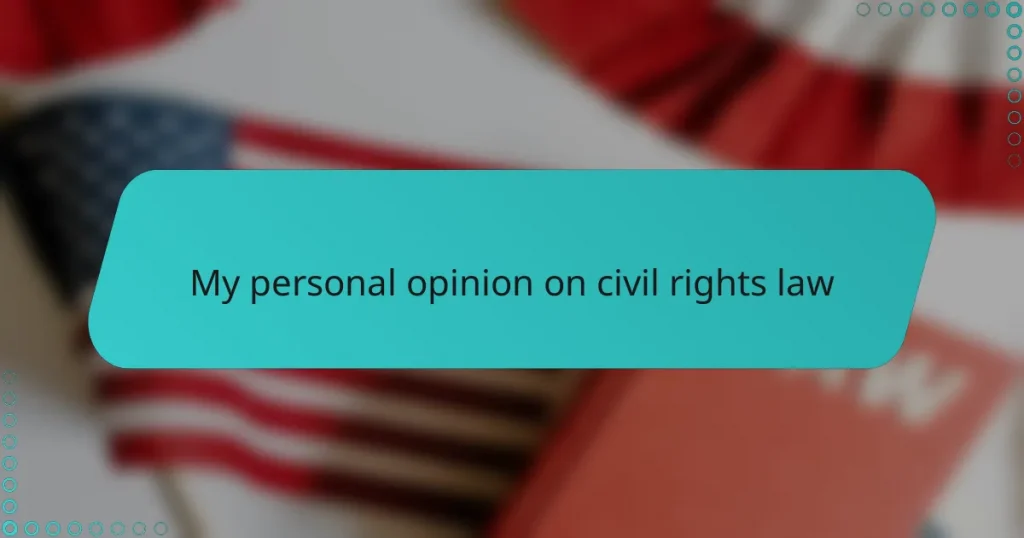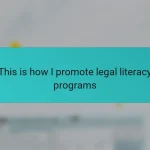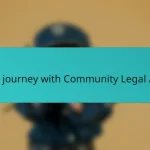Key takeaways
- Civil rights law serves as a vital protection of human dignity, addressing discrimination based on race, gender, and disability.
- Legal advocacy plays a crucial role in translating complex laws into accessible support for individuals, empowering them in their pursuit of justice.
- Challenges in enforcing civil rights include systemic bias, procedural complexity, and limited resources, which hinder effective advocacy.
- Future developments in civil rights law must address emerging issues like digital rights and intersectional discrimination, emphasizing the need for empathy in legal practice.
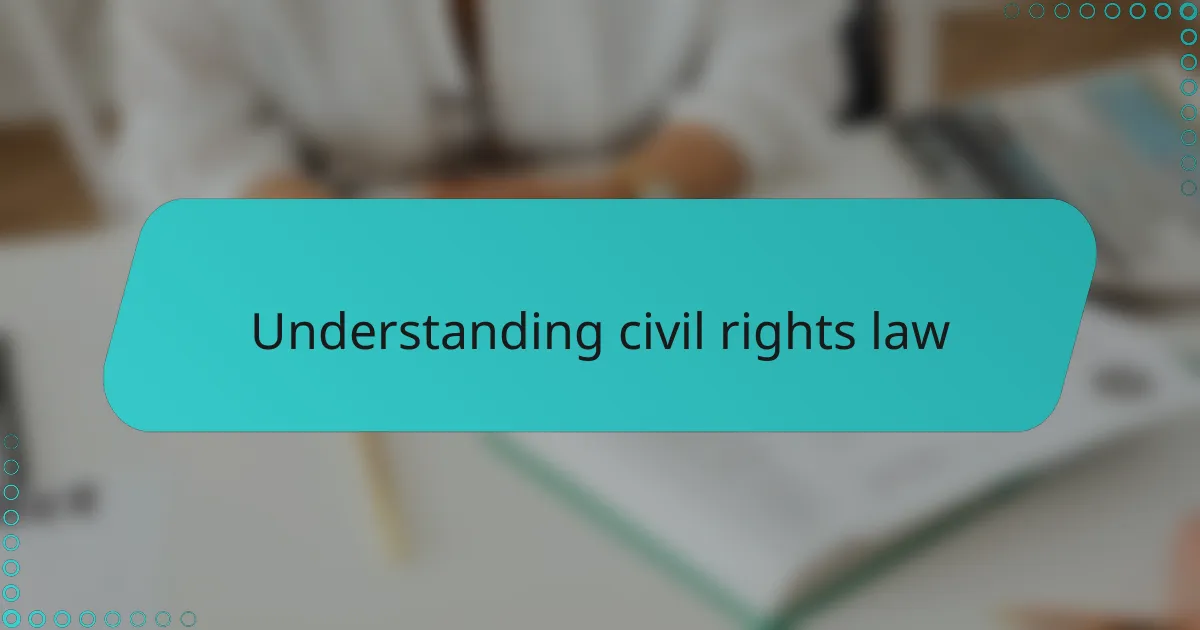
Understanding civil rights law
Civil rights law, to me, represents more than just a set of legal provisions—it’s a shield that protects fundamental human dignity. I’ve seen firsthand how these laws can be a powerful tool for individuals facing discrimination, giving them a voice when society tries to silence them. Have you ever wondered what it truly means to have your rights safeguarded by law?
When I think about civil rights law, I picture it as constantly evolving, responding to the changing tides of social awareness and justice. It’s fascinating how these laws address issues ranging from race and gender discrimination to disability rights, illustrating the broad scope of equality the law strives to ensure. This complexity often makes me appreciate the dedication required by legal advocates fighting tirelessly within this field.
Understanding civil rights law also means recognizing its limitations and the ongoing struggle to apply it fairly. I’ve met people whose experiences revealed gaps between legal protections on paper and reality. Isn’t it unsettling how, despite these laws, injustice persists—highlighting why legal advocacy remains so crucial?
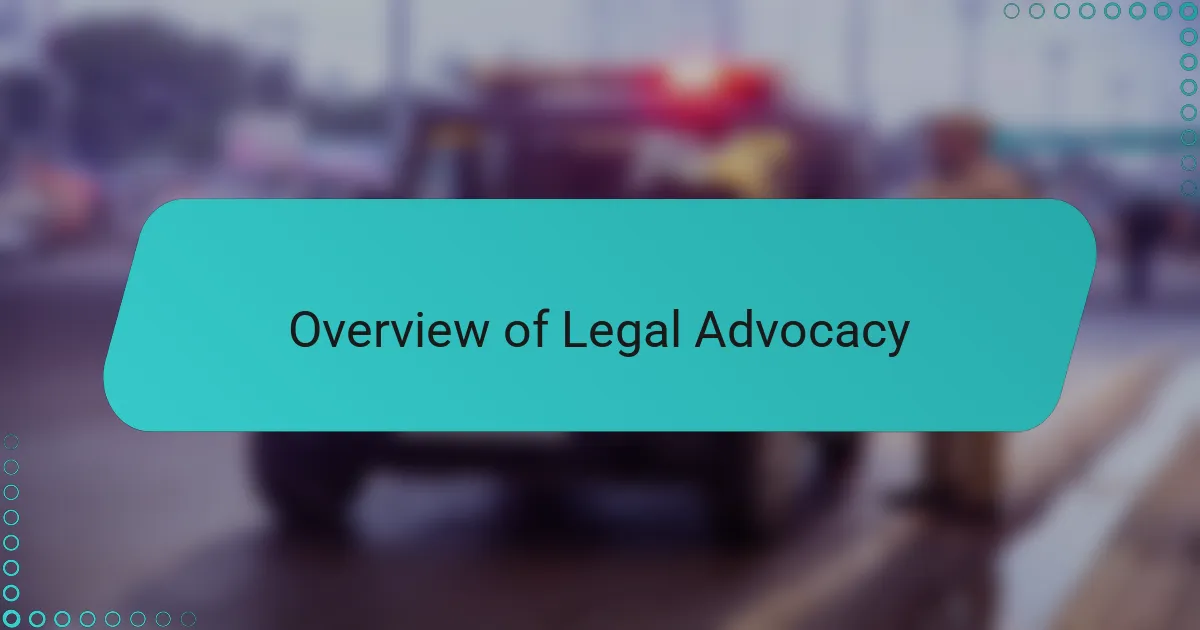
Overview of legal advocacy
Legal advocacy, in my experience, is the heartbeat of justice in our legal system. I’ve often thought about how advocates serve as both guides and warriors, helping individuals navigate complex laws that might otherwise feel intimidating or inaccessible. Have you ever felt overwhelmed by legal jargon? That’s precisely where advocacy steps in—translating and empowering.
I remember one case where a legal advocate didn’t just present facts but genuinely listened to the client’s story, turning it into a compelling narrative for justice. This personal touch is what makes legal advocacy so impactful; it’s not just about laws but about people’s lived experiences. It’s inspiring to see how advocacy can transform a challenging situation into a hopeful one.
What strikes me most is the unwavering commitment advocates show, often pushing against systemic barriers to ensure rights are not just theoretical but practical. Legal advocacy demands resilience, empathy, and a deep belief in fairness—qualities I admire and strive to embody in my own work. Don’t you think advocacy is where law meets real life?
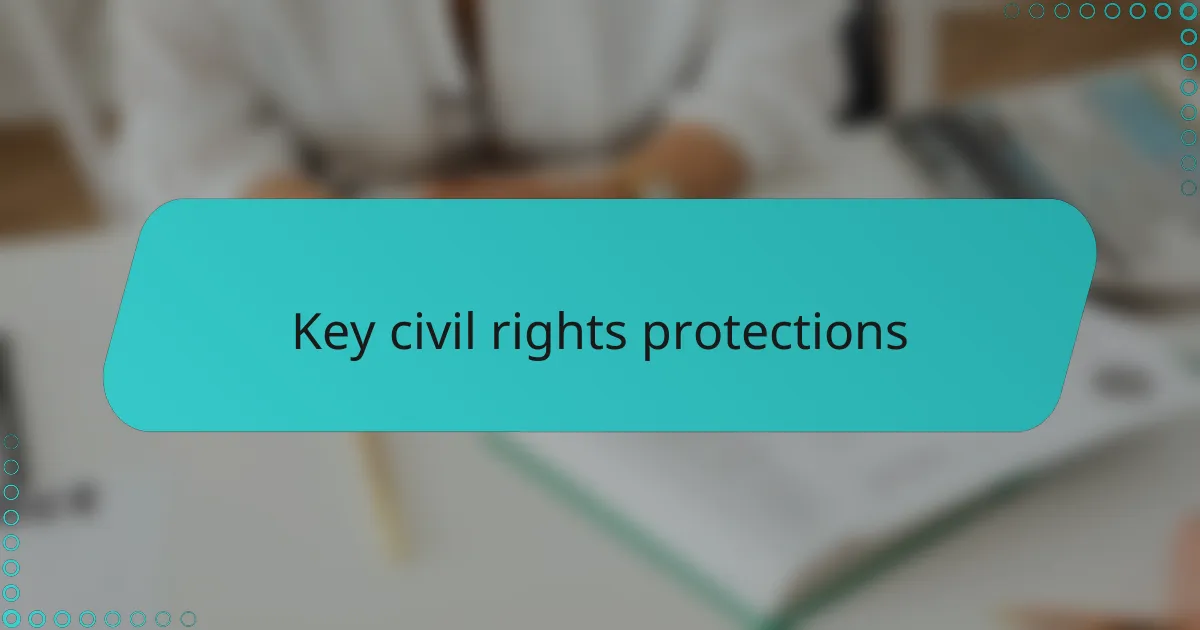
Key civil rights protections
When I think about key civil rights protections, what stands out to me is how they create concrete safeguards against discrimination in daily life—whether it’s in hiring, education, or accessing public services. I’ve seen how laws like the Civil Rights Act protect people from being treated unfairly just because of their race, gender, or other identities, and that matters deeply. Have you noticed how these protections can feel like a lifeline for those who might otherwise be invisible?
Another aspect that strikes me is the right to equal access, especially for people with disabilities. The Americans with Disabilities Act, for example, ensures not just physical access but respect and inclusion, which can change the course of someone’s life. I recall meeting a client who finally felt seen and valued because a simple accommodation was enforced—a reminder that these protections aren’t just legal technicalities but real human victories.
Yet, I often wonder: do these protections reach everyone equally? It’s clear that while the law sets the framework, the fight to enforce and expand these rights never really ends. Every time I witness someone’s rights upheld through law, I feel a mixture of hope and urgency—hope in the progress made, and urgency for the work still ahead. Wouldn’t you agree that understanding these protections deeply is the first step toward meaningful change?
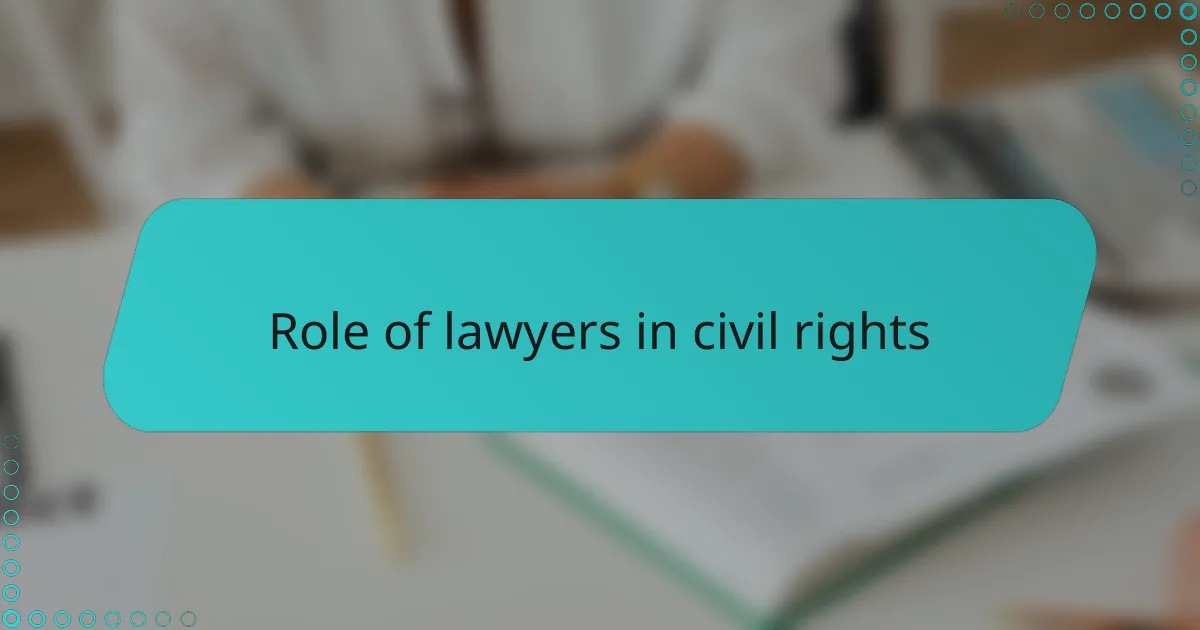
Role of lawyers in civil rights
Lawyers in civil rights don’t just argue cases; they become advocates for change in a system that often resists it. I remember working alongside a lawyer who spent hours listening to clients share stories of discrimination that many would have dismissed as insignificant. That attention to detail and genuine care can turn isolated incidents into powerful legal battles that challenge injustice.
What I find truly compelling is how these lawyers balance the courtroom fight with community education. They help people understand their rights, demystifying legal jargon that can otherwise feel like a barrier. Have you ever thought about how empowering it is when someone realizes they have the law on their side?
At times, the role of a civil rights lawyer feels like being both a protector and a pioneer—defending established rights while pushing for new ones. It’s a demanding path, often met with resistance, but witnessing even small victories reminds me why this work is so vital. Don’t you think that without such dedicated legal voices, many would remain unheard and unprotected?
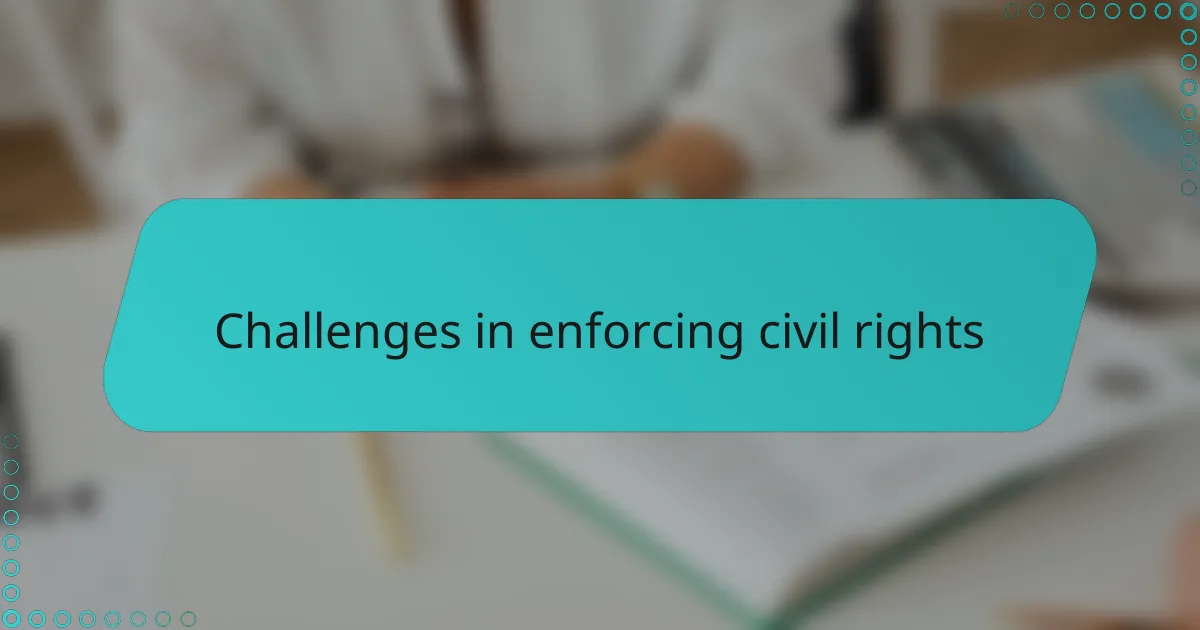
Challenges in enforcing civil rights
Enforcing civil rights often feels like pushing a boulder uphill, especially when laws exist on paper but face resistance in practice. I recall a case where systemic bias wasn’t just subtle—it was entrenched, making every legal step an uphill battle. Have you noticed how deeply some attitudes are ingrained, making enforcement not just a legal challenge but a human one?
Another hurdle I’ve seen is the overwhelming complexity of procedures that can intimidate those seeking justice. Sometimes, clients I’ve worked with felt lost in the maze of paperwork and court dates, which dampened their hope before the case even began. Doesn’t it seem unfair that those most vulnerable often have to fight the system’s complexity just to have their rights recognized?
Then there’s the challenge of limited resources—both for individuals and advocacy groups. I’ve witnessed passionate advocates stretched thin, juggling countless cases with insufficient support, which can delay or even derail critical enforcement efforts. It makes me wonder, how can we expect justice to prevail if the very defenders of rights are constrained by resources?
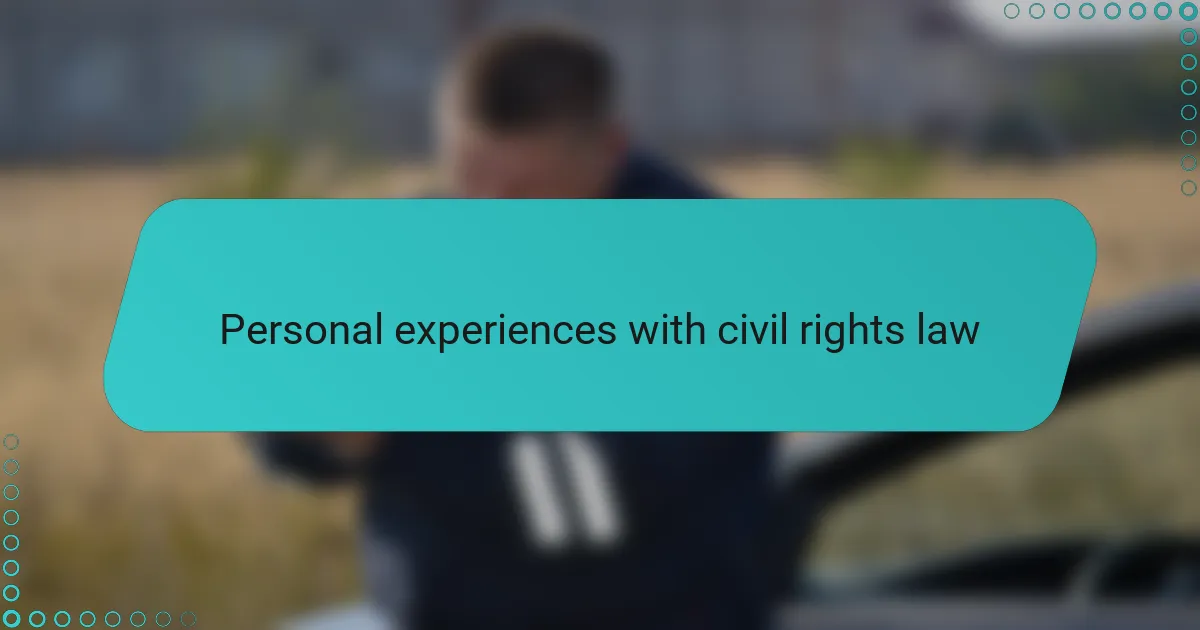
Personal experiences with civil rights law
One moment that stays with me involved a client who faced blatant housing discrimination. Watching the law in action meant more than just winning a case—it was about restoring someone’s faith that fairness isn’t just an idea, but a right they can claim. Have you ever witnessed how powerful that feeling of validation can be?
I’ve also experienced the frustration when legal protections fall short, especially in nuanced situations where biases are harder to prove. It’s heartbreaking to see individuals left without clear remedies, reminding me that civil rights law must constantly adapt and improve. Doesn’t that make you wonder how many stories go unheard because the law’s reach is limited?
On the other hand, I recall a community meeting where sharing personal civil rights experiences sparked hope and solidarity among strangers. It was a vivid reminder that these laws are about real people and tough journeys, not just statutes in a textbook. Isn’t it inspiring to think how collective voices can drive lasting change?
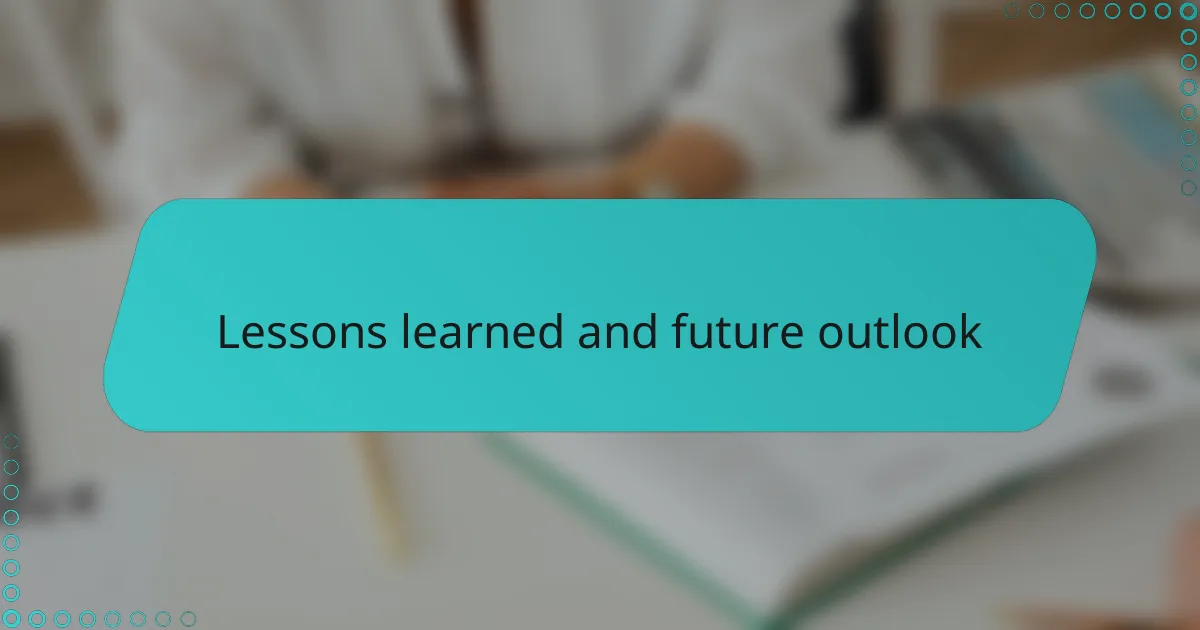
Lessons learned and future outlook
Reflecting on my journey with civil rights law, I’ve learned that progress is never linear. There are moments of victory that fuel hope, but also setbacks that test resolve. Have you ever felt that mix of triumph and frustration when watching justice unfold unevenly? That duality keeps me committed, knowing that every step forward paves the way for the next generation.
Looking ahead, I see civil rights law entering new terrain—digital rights, privacy, and intersectional discrimination call for fresh legal strategies. It reminds me of a case where technology magnified bias in unexpected ways, showing me how the law must evolve alongside society. Isn’t it exciting yet daunting to imagine what the future holds for protecting rights in an increasingly complex world?
Ultimately, the lesson that resonates most with me is that legal advocacy must remain rooted in empathy and resilience. Without the human stories fueling the advocacy, the law risks becoming abstract. I wonder, how can we better bridge the gap between legal theory and lived experience to ensure that civil rights law truly serves everyone?
